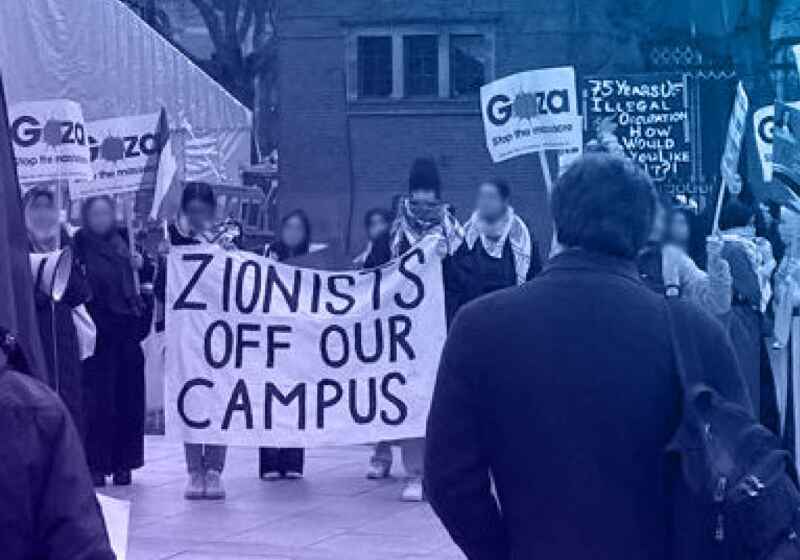CST Blog
Antisemitic Discourse Report 2019
21 December 2020
CST’s Antisemitic Discourse Report covering 2019 is released today. Antisemitism continued to play a prominent role in British public life in 2019 and even featured significantly in the 2019 General Election, a fact that is without precedent in modern British politics.
The national discussion on antisemitism in 2019 focused on the conduct of then Labour Party leader Jeremy Corbyn MP, with increased intensity during the General Election campaign in October-December. Before the election, eight Labour MPs, including one of the most prominent Jewish Labour MPs, quit the party, citing antisemitism and Corbyn’s leadership; the Equality and Human Rights Commission launched a formal investigation to determine whether the Labour Party unlawfully discriminated against, harassed or victimised individuals because they are Jewish; and BBC Panorama interviewed eight Labour whistleblowers, who made a range of allegations about the party leadership’s handling of antisemitism complaints.
The 2019 General Election campaign also saw prominent Jewish community leaders make unprecedented public interventions. Rabbi Jonathan Romain, a leading figure in the Movement for Reform Judaism, implored his community to vote tactically to defeat Labour due to a Corbyn-led government posing “a danger to Jewish life as we know it”. And two weeks before election day, Chief Rabbi Ephraim Mirvis published an extraordinary opinion piece on the front page of the Times, discussing the future of Jews and Judaism in Britain and stating that “challenging racism is not a matter of politics”.
However, the Labour Party was not the only political party to face problems of antisemitism in 2019, and nor was politics the only area of public life in which antisemitism reared its head. CST’s Antisemitic Discourse Report 2019 includes examples of Parliamentary candidates from the Conservative Party, Liberal Democrats, Scottish National Party and the Brexit Party all facing allegations of antisemitism in 2019. Of course, this is not the full story of how politicians engage with antisemitism as an issue, and the report also includes examples of strong statements made against antisemitism by politicians on all sides during the year.
Social media was a particular focus of concern over antisemitism and extremism. In partnership with the data science company Signify, CST published an empirical study of antisemitic social media posts that were done in the name of the Labour Party and Jeremy Corbyn.
The 2019 report goes well beyond the Labour antisemitism controversy. Other sections include UK supporters of the Iranian government disrupting cross communal Jewish-Muslim activities, antisemitism on university campuses and the Association of British Scrabble Players updating its offensive online dictionary definition of Jews.
You can download the Antisemitic Discourse Report 2019.


